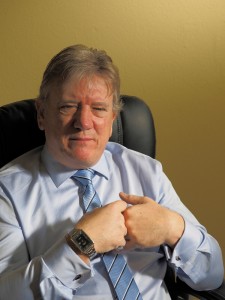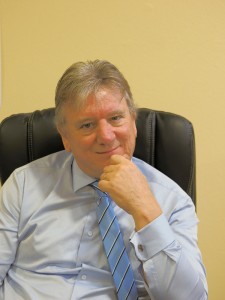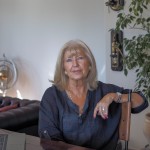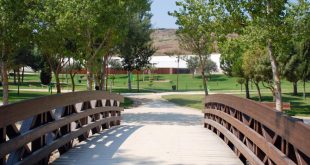
In the 1970s and 1980s, the number of international citizens buying houses or plots for construction in Portugal, with a particular incidence in the Algarve, was at a high level. And they experienced full on the locally prevailing lack of respect for bureaucratic rules and varying from council to council. To make matters worse, many international citizens did not live here full-time and did not keep up to date with the continuous changes ongoing to the legislation.
In 1987, AFPOP – the Association of Foreign Property Owners in Portugal was founded and serving as a type of mutual help centre, drawing upon the support of volunteers and with a board elected by its members. The association started life in Almancil but moved after a short while to Portimão when an associated living in Alvor got elected president.
After a few years, the legal and bureaucratic procedures grew more complex, the number of members was on the rise and AFPOP encountered the need to professionalise its service provision, opening up an office and contracting administrative support service. The elected directors, running their own businesses, were experiencing difficulty in organising the time necessary to properly run the association.
In 2003, they contracted a full-time secretary general, Michael Reeve, who took responsibility for day-to-day decisions in accordance with the policies handed down by the elected board. And AFPOP gradually began to get managed according to private sector practices, defending the interests of its some 5,500 members spread throughout mainland Portugal and Madeira even while around 95% reside in the Algarve.
Around 65% are British, with some Irish thrown in; followed by Germans on 18% and the Dutch on 9% with the remainder made up of various nationalities.
ECO123 asked Michael Reeve what role does an association with the size of AFPOP play in its host society.

Michael Reeve: This is a subject we engage with deeply and may generate a great deal of argument. Although the main objective of the association has been and continues to be the defence of interests and the wellbeing of its members, right from the outset we established bonds with Portuguese society. Because, while we have our community, with its own characteristics, we are still part of this society. Increasingly, our members, in moving here, are going to live among Portuguese citizens and not in areas reserved to immigrants. Hence, the association strives to interact with Portuguese citizens so that they understand what the foreigners are doing here and our members understand the way of living of the locals. We are building a bridge. A few years ago, we began contacting some Municipal Councils and, at this moment, we have contacts inside of them and where we get the responses our members need. And those councils now increasingly use our website in order to promote what they are doing. Since the beginning of this year, we have established contacts with another three councils. Furthermore, there are subjects of immense interests to us with forest fires one of the leading themes. The British are used to helping out with their local fire brigades, which are always in need of funding, even while still doing less than their Portuguese peers. Psychologically, they experience a sense of satisfaction out of helping and so do the Germans as well. After all, this is also to our own benefit. They are the people who transport us to hospital when falling sick and who aid us in case of fire or flooding”.
Our interviewee then mentioned the example of a member in S. Brás de Alportel, Linda Cree, who helped out her local fire crew (1) with AFPOP now studying the best means to roll out this type of initiative to other fire brigades in the Algarve.
“We should begin by being seen as an association in the true sense of the word. Our theme is: ‘We are here to help’. And not only our own members. We are here to help local councils, the fire service, the police authorities, the food bank and all other such associations. Take the Banco Alimentar food bank for example. What we can do is inform our members about the actions that are taking place. Hence, when foreigners go shopping and see the people handing out bags, they know what the purpose is and cooperate. And we have members serving as volunteers. We cannot help out financially but we can assist and spread the message.”
Michael Reeve affirms that, at the outset, AFPOP was seen as an organisation for protecting the rich foreigners owning properties in the Algarve – and that there might have been some truth in that affirmation. However, that concept changed a long time ago. “We are not an association protecting foreigners. As I have already mentioned, we form part of Portuguese society and are involved in this society. We seek to nurture cultural ties between the various nationalities. We know that we are not going to cure all the sufferings of the world but we do attempt to build up the bonds. Let me give you an example: thirteen years ago AFPOP began organising an annual exhibition, for the first three years in Silves and, subsequently, in Portimão. At the beginning, the event was entitled the ‘Better Living in Portugal Exhibition’ and was exclusively designed to promote the business activities of the international community in the Algarve. Last year, we resumed control over the organisation after having outsourced it and changed its name to ‘It´s Better Living in Portugal Exhibition’ and invited local artisans and the tourism boards of the Algarve and Alentejo in order to show what the Portuguese are doing and what the different regions have to offer. This year, we are getting greater involvement from Alentejo tourism and having invited the Porto board as well as being in talks with the Algarve authorities. There shall be wines from the various regions of Portugal and a special section for artisans working live. In summary, we are trying to show people why it is better to live in Portugal. And, to this end, we shall have greater participation from Portuguese society”.
The recession could not be ignored in such a conversation and we sought out the feelings of foreign property owners in relation to the drop in value of their homes. Michael Reeve explained: “There are those who say the prices of houses was inflated and that the recession brought about fairer values. And, just as soon as things pick up and banks begin lending money, there shall be purchases as people are going to be thinking that it’s the right time to buy. However, the main doubt of current owners consists of knowing whether or not they purchased at inflated prices. Some cannot sell because the current prices do not cover what they paid. Nevertheless, there is an increase in the number of potential buyers, especially the French. And the prices have begun rising slightly. My perspective is whoever has managed to hold out for the worst of the recession will stay on here after the Troika has gone. And furthermore because they have been less affected than the Portuguese even if the rise in prices, especially VAT, has taken away some of the quality of life. After all, it was quality of life that motivated them to come to Portugal”.
In 2002, Michael Reeve got fed up with the policies then prevailing in Britain and because he had been here twenty years earlier and had contacts here, he decided to sell up and move to the Algarve for six months to see how things would work out. When thinking about buying a car, he went to AFPOP to become a member and benefit from the cheaper group insurance policy. When he went in, he saw a job advert for the position of secretary general. He ran for the position and was accepted and took office in March 2003. And the good work still continues some eleven years later.

 Eco123 Revista da Economia e Ecologia
Eco123 Revista da Economia e Ecologia


